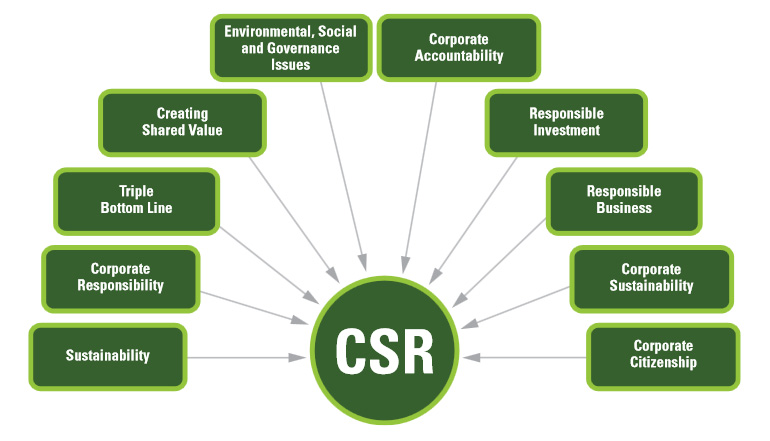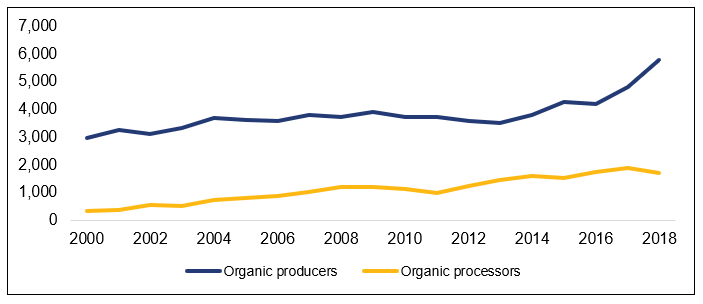Executive Summary
This paper describes the capacity to persist for an extended period, thereby improving the overall quality of life, sustaining the environment, and conserving natural resources for the benefit of future generations. Corporate Social Responsibility (CSR) refers to a model of conducting business in which corporations make an active effort to conduct their operations in a manner that is beneficial to society and the environment. It is beneficial to both society and the reputation of a business (Sheehy and Farneti 5965). The increasing demand and supply pressures in the agriculture sector are sustainability difficulties the company must contend with. As a result, businesses must embrace measures that reduce the environmental effects of their operations to remain competitive.
There is a shortage of sustainable methods, there is increased rivalry from other sectors, and there is an increase in global demand. These are the primary difficulties that face the agricultural sector in Canada. The absence of sustainable practices is relevant because it endangers our capacity to continue providing food security, while competition from other industries might also cause an overall decrease in production (Sheehy and Farneti 5965). If people do not change with the times, there will be an even greater demand for food than there is right now; as a result, initiatives to reduce waste and promote sustainability in the agricultural sector may benefit our company and our community.
Introduction
This report was prepared so that those involved in the Canadian agricultural sector and other board members would better understand how the company may become more sustainable to compete with the current trend. This report’s objective is to demonstrate the significance of sustainability and corporate social responsibility by first identifying the organization’s core practices that are not sustainable and then implementing practices that are healthy and sustainable. Similar to what other businesses around the world are doing, for the advantage of people, the environment, and the economy. This will be accomplished by identifying the organization’s core practices that are not sustainable and by incorporating those practices. This section will begin by briefly introducing the concepts of sustainability and corporate social responsibility.
After that, it discusses the company’s ongoing efforts to reduce its impact on the environment. Moving forward, it will discuss additional companies that have made significant investments in making their businesses very sustainable in various ways; these companies will be placed at the very top of the food chain as a result of their achievements. After that, a discussion on how the issues can be resolved to make agricultural decision-making more environmentally responsible will follow. After all, it will summarize the three steps toward sustainability that, in light of what you’ve learned, you believe a business operating in the industry of your choice should take.
Sustainability and Corporate Social Responsibility (CSR)
Sustainability refers to the ability of an organization to maintain its operations over time. A sustainable organization can survive over the long term by meeting its financial, social, and environmental obligations. Corporate Social Responsibility is the commitment of an organization to act in a way that is ethical, responsible, and sustainable. CSR includes various activities, from reducing environmental impact to supporting local communities as shown in diagram 1. Sustainability is important because it is the key to ensuring that the environment will be around for future generations (Rudyanto and Siregar 5). Sustainability aims to satisfy people’s needs in the here and now without jeopardizing future generations’ potential to do the same for themselves. There are four different kinds of sustainability: economic, environmental, social, and profit for both the earth and its inhabitants. Companies have been increasingly involved in achieving sustainability goals by taking actions such as reducing waste, developing sustainable energy sources, and supporting the construction and organization of a more sustainable society (Sheehy and Farneti 5965). The concept of corporate social responsibility is quite broad, and its application varies widely depending on the type of organization and industry.

Sustainability Challenges
The three main challenges facing the agricultural sector in Canada are a lack of sustainable practices, growing competition from other sectors, and increasing global demand. The lack of sustainable practices is relevant as it threatens the ability to continue providing food security, while competition with other sectors may also cause an overall decrease. The growing demand for food today will increase if we don’t adapt; hence, reducing waste and sustainability initiatives in the agricultural sector can benefit businesses and communities (Clapp and Ruder 55). Challenges in the Canadian agricultural sector have been changing rapidly. With these changes, businesses have to adapt and react to changing market conditions sustainably. Businesses need to stay engaged and up-to-date with global trends; however, it can be difficult when maintaining a healthy balance between profit, and environmental protection is difficult. These three challenges offer insight into what can be done to improve sustainability at farms and ranches regarding efficiency and performance.
Actions Businesses in the Agricultural Sector Doing to Manage the Challenges
To manage these challenges, agricultural companies can take steps to reduce their greenhouse gas emissions, conserve water, and protect soil and biodiversity. They can also support sustainable agriculture initiatives, such as organic farming as shown in diagram 1. Furthermore, they can educate consumers about the importance of sustainable agricultural products. By taking these actions, agricultural companies can help create a more sustainable food system in Canada (Waldick et al. 190). First, they can reduce greenhouse gas emissions by adopting sustainable agricultural practices like organic farming and agroforestry. Sobeys, a transnational grocery store retailer, has taken a unique approach to energy conservation by developing innovative hardware solutions for large commercial kitchens – such as solar ovens and windmills – that increase utilization and efficiency while reducing costs.

In addition, Armour AgriServ Company has been supporting sustainable agriculture initiatives by donating money or products to NGOs that promote sustainable farming practices. They can also participate in sustainability-related research projects (Pelletier et al. 3524). Moreover, agricultural firms can educate consumers about the importance of choosing sustainable agricultural products by advertising their products as being environmentally and socially responsible. They can conduct product testing to ensure they are sustainably produced, and provide educational materials on sustainable farming (Chen et al. 136998). Lastly, Longo is a Canadian food company whose sole purpose is building healthy communities. They are working with local farmers to create supply chains that generate healthy food products and improve the quality of life for their host communities.
Conclusion and Recommendations for Sustainability Actions
The first action is to define the company’s purpose and objectives. To do this, I recommend conducting a SWOT analysis for the firm to determine strengths, weaknesses, opportunities, and threats. The second action would be to develop a sustainability plan to help it achieve its vision. The plan can include several components, such as: reducing waste through circular economy or recycling programs, reducing emissions through energy conservation initiatives at the facility, and cutting down on water usage with landscaping ideas within the indoor areas of the building (Yasir et al. 2648). Lastly, ensure that the materials used in the products are free of any environmental pollutants. By doing so, the company is ensuring that the products will not harm the environment by having to dispose of them.
Works Cited
Chen, Tse-Lun, et al. “Implementation of Green Chemistry Principles in Circular Economy System Towards Sustainable Development Goals: Challenges and Perspectives.” Science of the Total Environment, vol. 716, 2020, p. 136998. Web.
Clapp, Jennifer, and Sarah-Louise Ruder. “Precision Technologies for Agriculture: Digital Farming, Gene-Edited Crops, and the Politics of Sustainability.” Global Environmental Politics, vol. 20 no. 3, 2020, pp. 49-69. Web.
Pelletier, Nathan, et al. “Sustainability in the Canadian Egg Industry—Learning from the Past, Navigating the Present, Planning for the Future.” Sustainability, vol. 10 no. 10, 2018, p. 3524. Web.
Rudyanto, A. and Veronica Siregar, S. “The Effect of Stakeholder Pressure and Corporate Governance on the Sustainability Report Quality.” International Journal of Ethics and Systems, vol. 34 no. 2, 2018, pp. 233-249. Web.
Sheehy, Benedict, and Federica Farneti. “Corporate Social Responsibility, Sustainability, Sustainable Development and Corporate Sustainability: What Is the Difference, and Does It Matter.” Sustainability, vol. 13 no. 11, 2021, p. 5965. Web.
Waldick, Ruth, et al. “An Integrated Decision-Support Process for Adaptation Planning: Climate Change As Impetus for Scenario Planning in an Agricultural Region of Canada.” Regional Environmental Change, vol. 17, 2017, pp. 187-200. Web.
Yasir, Nosheena, et al. “Impact of Environmental, Social Values and the Consideration of Future Consequences for the Development of a Sustainable Entrepreneurial Intention.” Sustainability, vol. 13 no. 5, 2021, p. 2648. Web.